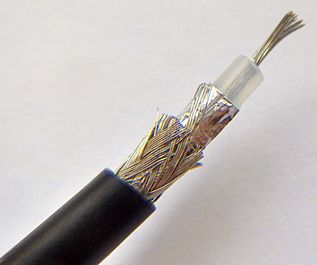There’s a lot of talk lately about “cutting the cord.” Cutting the cord means turning off your cable or satellite service. It’s one way to save about $1,200 every year on your household expenses. Even if you buy a GoogleTV or AppleTV box (or one of the many competitors) for $150 or less and subscribe to Netflix for $100/year, you can still save $1,000 a year. That’s a pretty big chunk of change!

This is a chunk of change. You could be saving this.
According to figures out recently, people are not cutting the cord. In fact, Comcast’s Investor Relations Page says their revenue is up 47% in the last year. If people are cutting the cord, it’s not hurting them. When you look at the rest of the numbers, you see that NBCUniversal isn’t really contributing anything to the bottom line, so that money has to be coming from the cable side of things.

Comcast is bringing in some serious dough.
It’s not just Comcast, either. DIRECTV’s fourth quarter statements came out today and they’re doing pretty well, too. Their net additions — that’s the number they gained minus the number they lost — is up 715,000. Even when they come out and tell you that their Latin American operation drove almost 600,000 net adds, that means they still gained 100,000 more people than they lost in the fourth quarter alone.
DIRECTV is doing just fine, thank you very much.
In fact, DIRECTV’s revenues are up 13% year over year. That’s not as impressive as Comcast’s, but you have to figure that Comcast probably had some revenue issues in 2010 with buying NBCUniversal. That makes the increase look artificially high.
However… if you dig deep into the numbers you find that DIRECTV’s Average Revenue per User is up 4.9%. Interestingly that’s not enough to account for the 6-9% increase in base prices over the last year. It doesn’t mean people are cutting the cord, but it does mean that people are being careful with what they spend.
It’s hard to know if there’s been a real increase in cord cutters over the last year. There’s no professional industry association for people who don’t get cable or satellite, and the only news comes from the providers themselves. They’re honest in what they report but sometimes the negative trends get lost in the fine print.
No matter what you read or where you read it, IPTV is definitely the future, though. There have been some missteps and some products that didn’t pan out, but there’s no doubt that the combination of antennas and internet-connected boxes is going to make a difference to cable and satellite companies.

Communicating with people used to mean one of these. The internet changed that.
Traditional telephone companies had to adapt and make peace with the internet and cable and satellite companies will do the same. In the meantime, if you want to cut the cord and replace cable or satellite with antenna and IPTV, there’s never been a better time.



